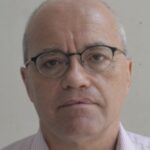
At Université de Lorraine in Nancy, Philippe’s work was assessed by a jury made of Professor Diane THOMAS (University of Mons, Belgium), Associate Professor Marie DEBACQ (AgroParisTech, Massy), Dr Vincent GERBAUD (Research Director at National Center for Scientific Research in Toulouse), Professor Pierre CÉZAC (Université de Pau et des Pays de l’Adour), Associate Professor Romain PRIVAT (Université de Lorraine) and Professor Jean-Noël JAUBERT (Université de Lorraine).
Philippe covered topics such as data reconciliation, process simulation, phase equilibria and safety in industrial gas processes. He stressed out
- the need to reconcile data measured on an industrial site or a pilot plant in order to close the material and energy balances,
- the lack of experimental values both at the level of the thermodynamic properties of binary mixtures and at the level of the kinetic parameters associated with a chemical reaction and its implementation,
- the need to integrate the constraints of an industrial operation and in particular the requirement for reliability from the very first stages of a project,
- the need to adapt the level of complexity of a model to the level of error deemed acceptable,
- the difficulty of working with real species in the aqueous phase and with apparent species in the major part of the process and the discernment required in the definition of the model’s assumptions in order to clearly distinguish between what will be calculated by the thermodynamic model and what will be calculated by the process model itself.
Philippe also pointed the need for interoperability in process modeling and simulation: nowadays it is necessary to easily incorporate new PMCs in existing PMEs, as well as make available models already incorporated in PMEs accessible to other applications. Philippe stated that the CAPE-OPEN standard allows process engineers, through an adequate choice of ready-to-be-used software components, to increase the quality of process developments while reducing the time necessary to perform these developments.
Philippe was awarded the accreditation to supervise research. Congratulations!
